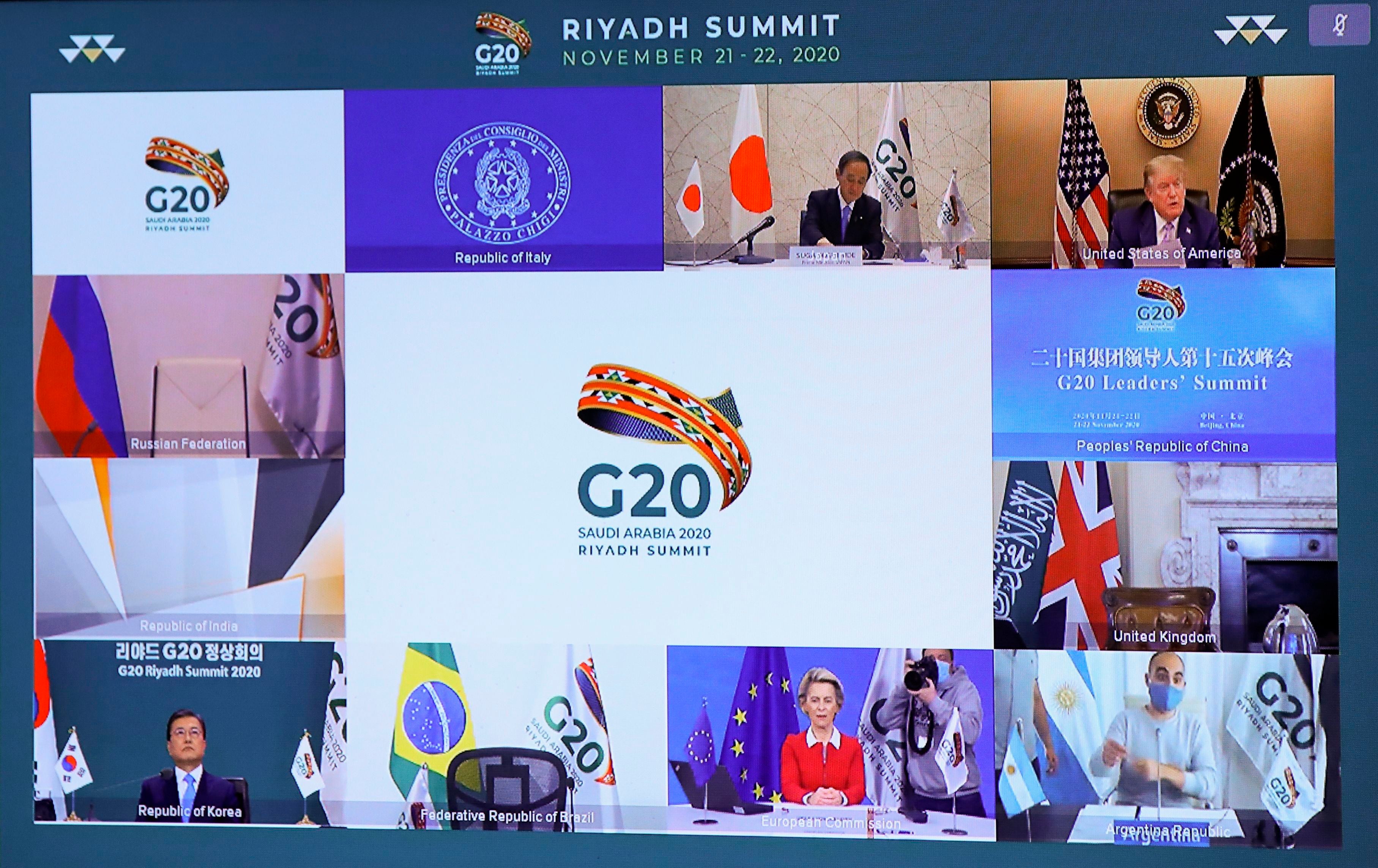Saudi G20: Does this summit signal that normality is finally returning to global diplomacy?
Analysis: Will the departure of Trump from the White House put out the fire under the G20’s credibility? Does this weekend’s virtual leaders summit in Riyadh give us a glimpse of restoration? Ben Chu explains


Your support helps us to tell the story
From reproductive rights to climate change to Big Tech, The Independent is on the ground when the story is developing. Whether it's investigating the financials of Elon Musk's pro-Trump PAC or producing our latest documentary, 'The A Word', which shines a light on the American women fighting for reproductive rights, we know how important it is to parse out the facts from the messaging.
At such a critical moment in US history, we need reporters on the ground. Your donation allows us to keep sending journalists to speak to both sides of the story.
The Independent is trusted by Americans across the entire political spectrum. And unlike many other quality news outlets, we choose not to lock Americans out of our reporting and analysis with paywalls. We believe quality journalism should be available to everyone, paid for by those who can afford it.
Your support makes all the difference.Like a tornado in a deserted conference hall, the damage inflicted by the Trump administration on the fabric of international institutions since 2017 has not been hard to discern.
We’ve had the deliberate stymying of the World Trade Organisation, the defunding of the World Health Organisation and the withdrawal of the US from the Paris climate change accords.
The G20, created in its modern form during the financial crisis of 11 years ago, has been a less conspicuous victim of Trump’s wrecking ball of global institutions.
Yet the multilateral forum has, nevertheless, been hamstrung by the Trump years.
Trump refused to support previously standard language in G20 communiques about rejecting protectionism and promoting international cooperation on tackling climate change, draining them (even more than usual, cynics would say) of any meaningful content.
And earlier this year the White House even effectively tore a communique up while the ink was still wet upon it.
The G20, under the leadership of Saudi Arabia, came together for an emergency summit in March in response to the newly announced pandemic and explicitly promised to “strengthen the WHO’s mandate”. The very next month Trump announced he was suspending US funding for the organisation.
Such behaviour, inevitably, ignited a flame underneath the G20’s credibility. The question is: will the departure of Trump from the White House put it out? Does this weekend’s G20 full leaders’ summit (albeit a virtual one) in Riyadh give us a glimpse of restoration?
President Trump was, technically, part of this year’s meeting, but he was semi-detached. His image, sitting behind his desk in the White House situation room, could be seen among the wall of world leaders streamed in remotely to the Riyadh command centre when it opened on Saturday. Yet the attention of the US president – whose term is due to end on 20 January – seemed to be elsewhere.
Around 13 minutes after it began, according to CNN, Trump was busy tweeting about the US election result, which he still, of course, contests. And not long after that he’d apparently left the White House to play golf.
No one should be surprised by that. What use is a digital summit to a man who relishes concluding private tete-a-tete “deals” with other world leaders, as he did on the sidelines of the 2018 G20, when Trump and Xi Jinping agreed to delay threatened tariff hikes on each others’ countries.
What value is a video screen to someone who demands to be the centre of attention in a room full of world leaders?
Trump’s recorded speech to the summit on the environment was, again predictably, a justification for his administration’s decision to withdraw from the Paris accords, rather than any sort of constructive vision of how to tackle the climate crisis.
The Riyadh summit’s final statement is not, it is fair to say, long on ambition. Despite the pleas from the European Commission there is no commitment to ensure and fund an equitable global rollout of any viable new coronavirus vaccines.
Despite the calls from the International Monetary Fund and the World Bank there is no forgiveness for developing world debt. G20 member countries have agreed only to look again at the issue in 2021. The job of opening that particular parcel – and getting private sector creditors to agree – passes to Italy, which takes over the presidency from Saudi Arabia next year.
The sections on climate change and trade are hedged, no doubt reflecting the blocking hand of the White House.
Yet the mood around the summit seemed more positive than in previous years, probably because of the identity of Trump’s successor.
The members states know that the president-elect, Joe Biden, has pledged to return the US to the Paris climate change agreement, restore American membership of the WHO and to work constructively within the WTO framework.
As vice president under Barack Obama during the global financial crisis Biden also understands the value of organisations like the G20, particularly in an international crisis.
There remains an depressingly long list of “strongmen” leaders around the G20 table – from Brazil’s Bolsonaro, to Turkey’s Erdogan, to India’s Modi, to Russia’s Putin, to China’s Xi.
But without Trump the ability and even willingness of this authoritarian caucus to block attempts at coordination in areas ranging from climate change and trade will almost certainly be lower. With the exception of Putin, they have all congratulated Biden on his victory.
The G20’s long-term future cannot be taken for granted. But it seems to have made it through the Trump tornado. After the past three years, that’s something of an achievement.

Join our commenting forum
Join thought-provoking conversations, follow other Independent readers and see their replies
Comments